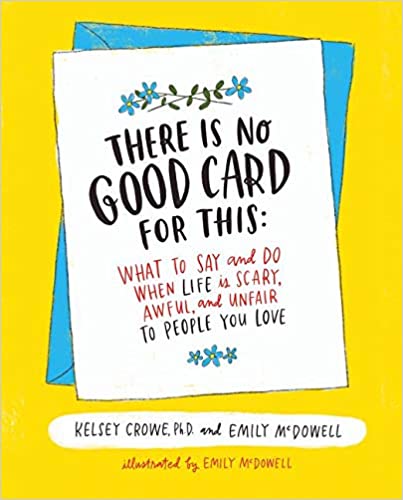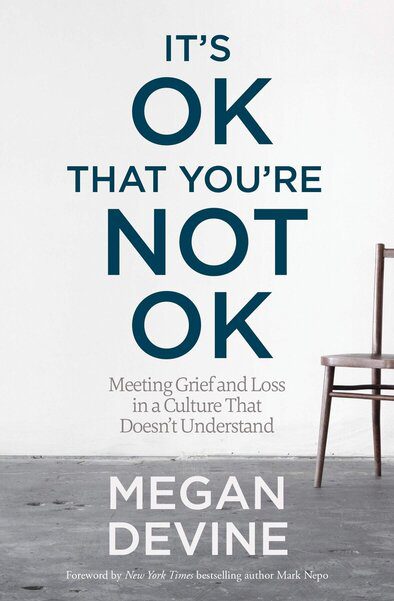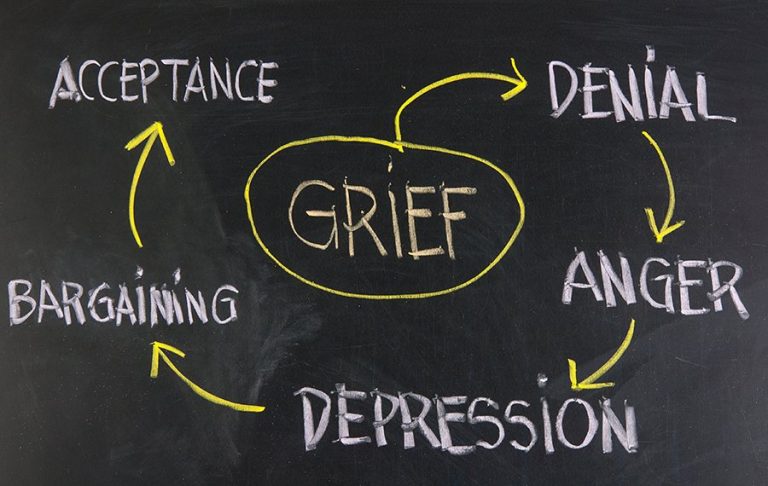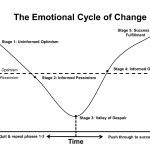Grief is the anguish experienced after a significant loss, usually the death of a beloved person. Grief often includes physiological distress, separation anxiety, confusion, yearning, obsessive dwelling on the past, and apprehension about the future. Grief may also take the form of regret for something lost, remorse for something done, or sorrow for a mishap to oneself. 1 Grief is a universal human experience that we all must experience at some point. We grieve for different reasons, such as the loss of a loved one, job loss, ill health, divorce, heartbreak, disappointment, etc. Going through grief can be extremely tough with the emotional rollercoaster of pain, sadness, anger, regret, loneliness, dejection and sometimes relief. American essayist Ralph Waldo Emerson once quipped, “ When it is darkest, we can see the stars.
Grief is like the ocean; it comes on waves ebbing and flowing. Sometimes the water is calm, and sometimes it is overwhelming. All we can do is learn to swim. – Vicki Harrison
The last five years have been laced with multiple grief situations for me. From losing my mum to cancer (2019), getting laid off (2020), and marital separation/divorce (2021-2023). It’s been a roller coaster of different emotions from denial, pain numbing, isolation, overwhelm, fear, shame, guilt, regret, longing, apathy and despair. We all grieve differently as a result of our upbringing, social programming, indoctrination, religious code and cultural norms. The emotions during grief are never-ending, from the unsaid goodbyes to survival guilt (a mental condition that occurs when a person perceives themselves to have done wrong by surviving a traumatic event when others did not). To say it’s been tough is an understatement, but grief also has in it laden with a gift.
Losing my Mum at 55 gave me the gift of life and a renewed sense of urgency. Getting laid off from the gig renewed my desire to pursue my entrepreneurial dream. Getting divorced is becoming a chance to become more self-aware and whole again. I have had to use various coping mechanisms, both good and bad, to navigate the grief. From the good: daily meditation, reading, running multiple marathons to the somewhat bad like retail therapy and social isolation. It’s been tough, but the most crucial part of grief is that it has taught me radical acceptance, impermanence, resilience and using better-coping mechanisms to navigate the vicissitudes of life. I am proud of the man that I am becoming, navigating the grief and not losing myself in the process. Grief is a gift, although it is tough to see it when you are going through it.
“Let me not pray to be sheltered from dangers but to be fearless in facing them. Let me not beg for the stilling of my pain but for the heart to conquer it. Let me not look for allies in life’s battlefield but to my own strength. Let me not crave in anxious fear to be saved but hope for the patience to win my freedom. Grant me that I may not be a coward, feeling your mercy in my success alone; but let me find the grasp of your hand in my failure.” – Rabindranath Tagore, Fruit-Gathering
What Grief Looks Like

In their book, There Is No Good Card for This: What To Say and Do When Life Is Scary, Awful, and Unfair to People You Love, Dr. Kelsey Crowe and Emily McDowell write:
For starters, grief usually comes with some kind of tangible primary loss. It can be loss of mobility, energy, or appearance if dealing with health. It can be loss of a loved one, loss of a job, loss of a marriage. Even in depression, there is loss of the ability to feel just about anything. Caregivers of people who are ill lose companionship they counted on. People who experience miscarriage and infertility experience the loss of a dream of the future.
ALL OUR DIFFICULT TIMES INVOLVE SOME DEGREE OF SHAME, FEAR, AND LONELINESS. AT TIMES LIKE THAT, WE DON’T NEED ANYONE TO IMPRESS US OR SKILLFULLY TALK US OUT OF OUR PAIN.

Grief is Tough
In It’s OK That You’re Not OK: Meeting Grief and Loss in a Culture That Doesn’t Understand, Megan Devine offers a profound new approach to both the experience of grief and the way we try to help others who have endured tragedy. She writes:
Grief is tough, draining, and lonely as most people think they understand what you are going through; I have been there a couple of times, from losing my closest cousin, losing my mum, to getting laid off. We handle grief differently, but most grievers have something in common: you get judged, people make assumptions, they say hurtful things unintentionally, some relationships dissolve while others get stronger. Our culture does not prepare a lot of us to handle grief and care for people in grief.
Grief is already a lonely experience. It rearranges your address book: people you thought would stay beside you through anything have either disappeared or they’ve behaved so badly, you cut them out yourself. Even those who truly love you, who want more than anything to stay beside you, fall short of joining you here. It can feel like you lost the entire world right along with the person who died. Many grieving people feel like they’re on another planet, or wish they could go to one. Somewhere there are others like them. People who understand.
“Grief is not a problem to be solved; it’s an experience to be carried. The work here is to find—and receive—support and comfort that helps you live with your reality. Companionship, not correction, is the way forward.”
Meditations
Daily Calm with Tamara Levitt – Boldness
Boldness can take many forms, start where you are comfortable and gently push to the edge of your comfort zone. When you do, don’t do it alone; find support.
“Another world is not only possible, she is on her way. On a quiet day, I can hear her breathing.”― Arundhati Roy
Daily Jay with Jay Shetty – Balance
To live well, we all must balance work and rest, challenge and comfort, novelty and routine. If you spend all your time working, you might miss all life’s incredible moments. But if you rest too much, you won’t feel purpose.
If you challenge yourself too much by taking on overwhelming tasks, you might burn out. But if you are all about play and you never dare confront obstacles, you won’t really grow. If you seek too much novelty, you might overextend yourself, but if you stick too strictly to routine, you become stagnant.
Everyone’s balance looks different. You need to pinpoint what works for you and realize that external factors in your life may require you to reconsider. Situations change, priorities shift, and what works now might not work later. Balance may be your goal, but it is essential to flow with whatever the season brings. The sum of your experience is what makes you whole.
Podcast
- The Narcissism Doctor: THESE Toxic Patterns Are Signs You’re Dealing With A Narcissist – Jay Shetty Podcast
All the best in your quest to get better. Don’t Settle: Live with Passion.



Comments are closed.